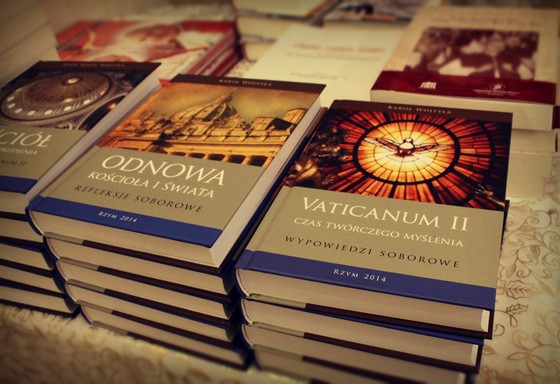On the Sunday evening of December 13 this year, in the auditorium of the St. Stanislaus Bishop and Martyr Church in Rome, a meeting dedicated to the 50th anniversary of the ending of the Second Vatican Council took place. It was also an opportunity to recall the importance of the pontificate of John Paul II for the implementation of the teaching of this Council into the Church’s life. The main participants of the meeting were Rev. Fr. Prof. Dariusz Kowalczyk SJ, a dean of the Faculty of Theology at the Pontifical Gregorian University in Rome, and Rev. Fr. Prof. Zdzisław Kijas OFMConv from the Congregation for the Causes of Saints in Vatican. Rev. Dr. Andrzej Dobrzyński, the editor of the three volumes of Karol Wojtyła’s conciliar writings, was a moderator of the gathering.
Fr. Kowalczyk, in his presentation “A True and False Spirit of The Council”, stressed that the reception of the Council is not completed and that in the Church there is a lot of anxiety towards the modern world and towards the openness to ideological novelties: from a naivety towards the world to the complete isolation from mundane influences. The spirit of the Council falsely understood was conceived as an indiscriminate opening to the world or to the freedom of choice among the truths of faith and morals. In turn, the authentic spirit of the Council is formed on the basis of knowledge of the letter, i.e. of the 16 documents of the Vaticanum II.
Fr. Kijas, in his speech entitled “Is the Second Vatican Council still significant after 50 years?”, responding to the question in the title, said that in a certain sense, the Council took place too late, because the crisis of the power and authority had already lasted, and it had started to undermine existing customs. The Vaticanum II was a council completely different from the previous ones, because it did not have to define a new dogma, but aimed to encourage the Church to pastoral renewal. The speaker stressed that the time of a sterile debate about the Council should finish. Currently, one should take into account especially that what was the most important in the Vaticanum II and has prophetic significance: the proclamation of Christ to contemporary people.
AD
